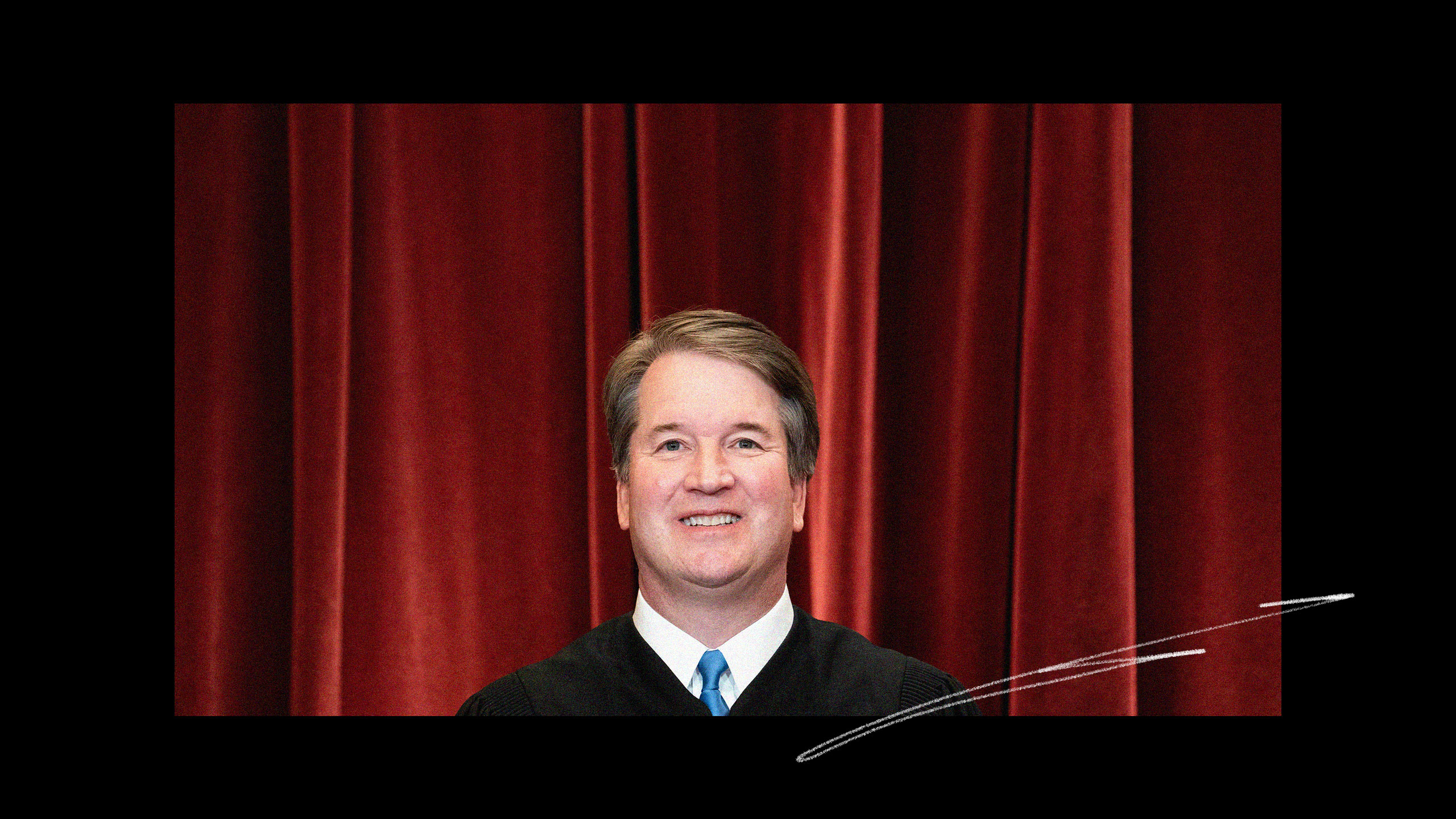During oral arguments before the Supreme Court, Justice Brett Kavanaugh suggested that landmark cases protecting LGBTQ2S+ civil rights justify imperiling abortion access across the United States.
In a Dec. 1 hearing, Kavanaugh argued the decisions in Lawrence v. Texas, which decriminalized sexual relationships between same-sex couples, and Obergefell v. Hodges, which struck down remaining bans on same-sex marriage, overruled past precedent. Therefore, he claimed that Roe v. Wade, the 1973 decision that established the right to an abortion, could be overturned.
“If you think about some of the most important cases, the most consequential cases in this Court’s history, there’s a string of them where the cases overruled precedent,” the conservative jurist said in comments reported by Newsweek.
Kavanaugh went on to claim that the United States “would be a much different place” if the Supreme Court had upheld previous rulings in those cases.
LGBTQ2S+ advocacy groups strongly criticized Kavanaugh’s remarks. Lambda Legal called the comments “deeply disingenuous” and acknowledged that the reproductive rights movement paved a path for the wins in Lawrence and Obergefell.
“Our cases stand on the shoulders of the women who fought for reproductive justice,” Lambda Legal’s litigation director, Camilla Taylor, tells Xtra. “Lawrence and Obergefell were cases that acknowledged the equal dignity of other people. Roe v. Wade was a decision that also acknowledged the equal dignity of other people by providing for access to a fundamental right.”
Monday’s arguments concerned Dobbs v. Jackson Women’s Health Organization, in which the Supreme Court was asked to examine a Mississippi law that would ban abortion after 15 weeks of pregnancy. The law is directly at odds with Roe, which established the right to abortion up until a fetus can live oustide a womb, known as “fetal viability,” at around 24 weeks of pregnancy.
The decision in Roe was upheld in Planned Parenthood v. Casey, a 1992 Supreme Court case that allowed states to restrict abortion as long as it didn’t impose an “undue burden” on someone wanting to end a pregnancy.
If the Mississippi law is upheld, it would throw away nearly 50 years of precedent set by Roe v. Wade, moving the fetal viability line of 24 weeks down to 15 weeks.
“If you erode the foundation on which LGBT civil rights precedent stand, you render our case law vulnerable to attack.”
If the Supreme Court overturns Roe, it could allow the conservative-majority court—which tilts 6-3 to the right—to undermine Obergefell and Lawrence, too. “If you erode the foundation on which LGBT civil rights precedent stand, you render our case law vulnerable to attack,” Taylor says. “Justice Kavanaugh knows that.”
Taylor asserts that Roe increased individual liberty and “vindicated fundamental rights” of U.S. citizens, which has clear parallels for LGBTQ2S+ community following a year that has seen unprecedented attacks on trans youth access to sports and affirming medical care. More than 30 states introduced legislation targeting queer and transgender people in 2021, and those bills were signed into law in at least eight, including Alabama, Arkansas, Tennessee and Texas.
According to Taylor, these issues are all inextricably linked. “Not only is abortion basic health care, but people who need abortion need to be able to structure their families, need to have autonomy over their own medical decisions, need to be able to secure their own economic and educational futures,” she says.
Even right-wing groups have indirectly acknowledged the connection between Roe and the movement for LGBTQ2S+ equality. In an amicus brief in Dobbs filed by the conservative group Texas Right to Life, the group argues that abortion access is a “court-invented right” without any constitutional basis. It goes on to state that the rights protected under Lawrence and Obergefell are likewise “judicial concoctions” that have no legal basis.
“Lawrence and Obergefell, while far less hazardous to human life, are as lawless as Roe,” the brief states.
Should Roe be overturned, far-right activists are likely to file immediate challenges to other critical LGBTQ2S+ rulings and may find a receptive audience among the Supreme Court’s most conservative members. When the court rejected an appeal in Oct. 2020 from former Rowan County, Kentucky, clerk Kim Davis, who was jailed for five days in 2015 after refusing to marry same-sex couples, Justices Samuel Alito and Clarence Thomas were sympathetic to her arguments.
Thomas, while ultimately electing not to hear the case, wrote that Davis’ predicament was a “stark reminder of the consequences of Obergefell.”
“Davis may have been one of the first victims of this court’s cavalier treatment of religion in its Obergefell decision, but she will not be the last,” argued Thomas, who accused the 5-4 marriage equality ruling of privileging a “novel constitutional right over the religious liberty interests protected by the First Amendment.”
Given the opinions of his own colleagues, Taylor says that Kavanaugh’s comments are “not only the deepest irony but enraging.”
“It’s no secret that they’re coming after us,” she says. “We know that once Roe crumbles, these same people who are arguing that Roe v. Wade should be overruled will argue that Lawrence and Obergefell should be overruled.”
A decision on the Mississippi abortion access case is expected in June 2022.


 Why you can trust Xtra
Why you can trust Xtra


